Bellamy's says sorry for Australian baby milk shortage
- Published
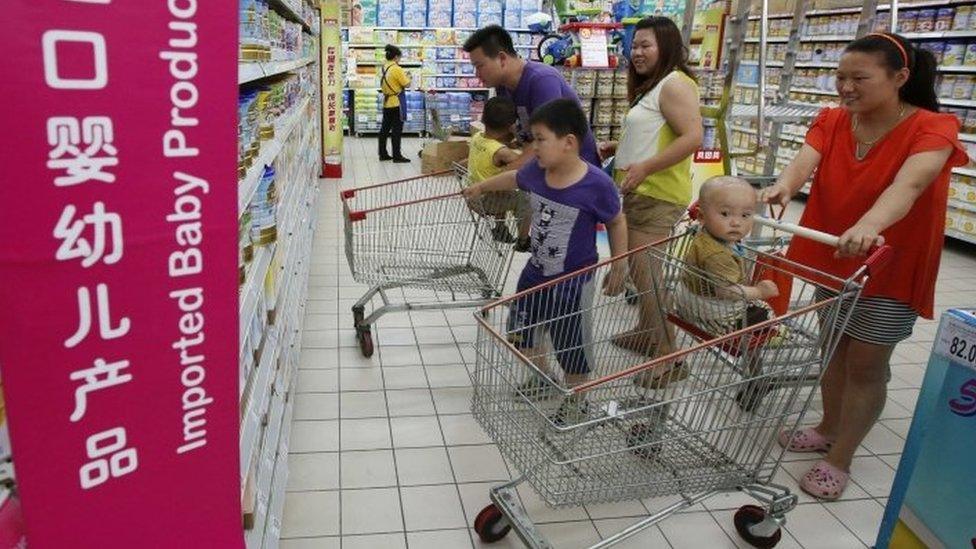
Imported infant milk powder products are sought after in China
Watching your products fly off the shelves is not usually regarded as a problem by most companies. But for the Australian maker of a popular baby milk powder, demand from China is resulting in shortages on domestic shelves and anger among loyal customers.
A surge in sales ahead of China's online discount shopping day, Single's Day, which falls on Wednesday, has worsened the problem.
Bellamy's Australia has now apologised to its customers, many of whom have been unable to find cans of formula in their local supermarket.
The Tasmania-based company, which makes Australia's only certified organic infant formula, blamed "unprecedented demand" for its products last month.
Following angry comments from customers, Bellamy's said on its Facebook page, external that "purchases of products solely for the practice of on‐selling in overseas markets has led to limited stocks of [its] products on the shelves of Australian retailers".
The popularity of foreign baby milk products has prompted some Chinese people in Australia to snap up cans to resell to Chinese buyers.
'No control'
While a can of Bellamy's infant formula costs about A$20 in Australia (£9.33, $14.10), it can sell for as much as four times that amount in China.
"It's a fact that our brand is also very popular in China," Bellamy's said. "As a result some people like to buy our product here from Australian retailers and on‐sell it to China. We do not condone this activity but we have no control over what happens to our stock once we have delivered it to our retailers," it added.
Australian consumer rights group Choice has been told that some people who buy large amounts of formula made by companies such as Bellamy's sell them on sites such as Taobao, a Chinese auction platform similar to eBay.
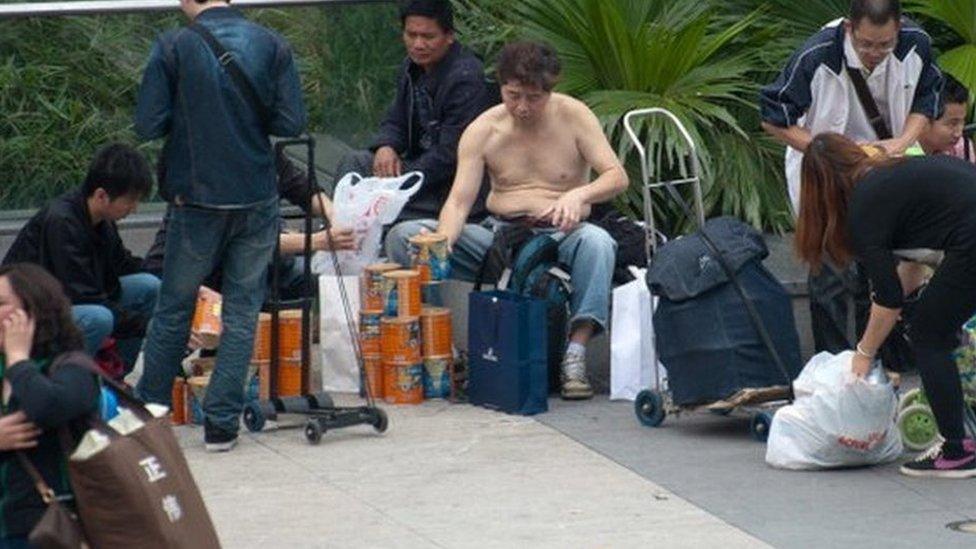
Traders buy tins of baby milk powder from travellers near Shenzen in 2013
Imported baby milk powder has been the preferred product in China since a deadly tainted milk scandal in 2008 when at least six children died and some 300,000 fell ill after consuming milk products contaminated by melamine.
Bellamy's said that some retailers have limited purchases to two tins per customer, but that demand remained strong and "shelves are soon stripped".
"We are doing everything possible to increase production as rapidly as we can, but this takes some time," the company added.
As well as China, its products are also sold in Hong Kong, Malaysia, New Zealand, Vietnam and Singapore.
Online sales of Bellamy's are being restricted to three tins a fortnight for customers with addresses in Australia and New Zealand.
It expects stocks to improve from late November.
Supermarket chain Woolworths has an eight can per customer limit for Australian-made baby milk formula, while rival Coles has restricted sales to four units per customer.
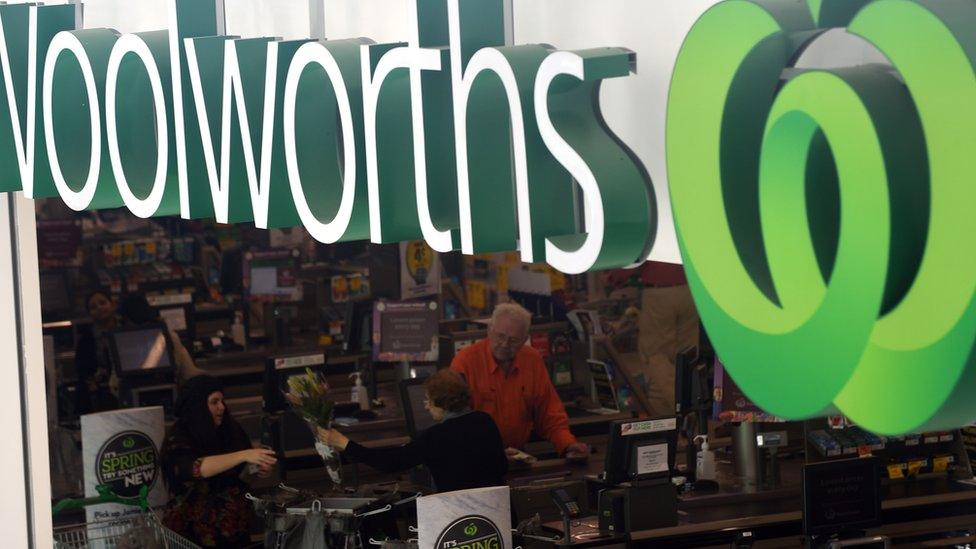
The Australian supermarket has an eight-can limit on baby formula sales
Big business
The faith of Chinese consumers in baby milk products made in Australia and New Zealand is proving to be big business.
In the year to August, Bellamy's net profit, external soared more than 600% to A$9m, while revenues rose 156% to $A125m.
Since floating on the Australian stock market in August last year, Bellamy's shares have risen by an astonishing 580%, making the company worth almost A$900m.
The stock jumped 33% in the past month after China announced the end of its one-child policy.
Meanwhile, New Zealand's Fonterra - a farmer-owned co-operative that is the world's largest dairy products exporter - has said the infant formula market in China is worth about $15bn (£9bn) a year and would be worth more than $27bn by 2017.
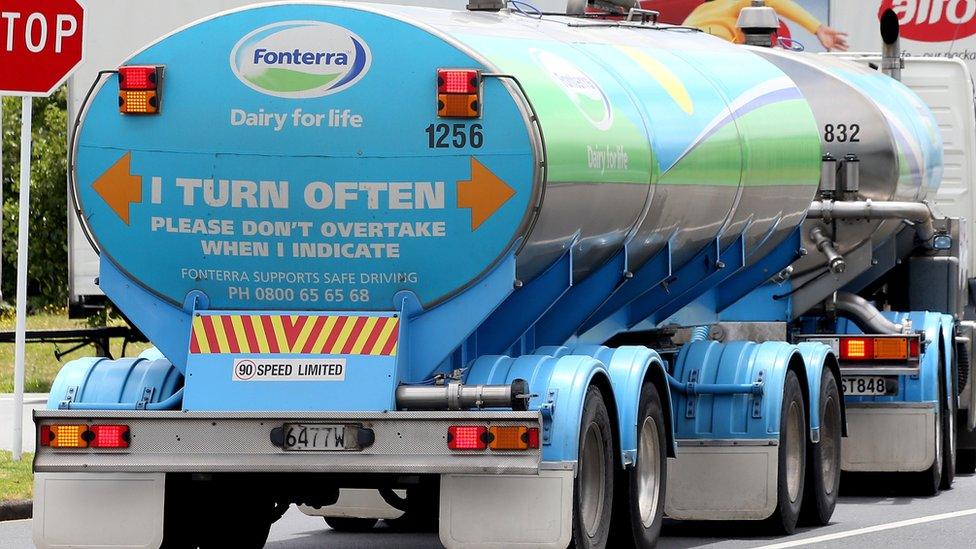
New Zealand dairy giant Fonterra says the infant formula market in China is worth about $15bn
- Published27 August 2014
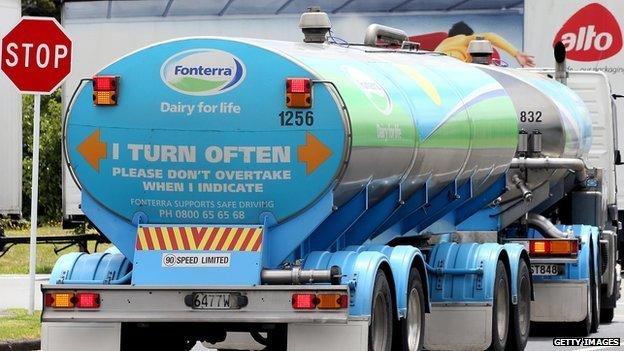
- Published29 October 2015
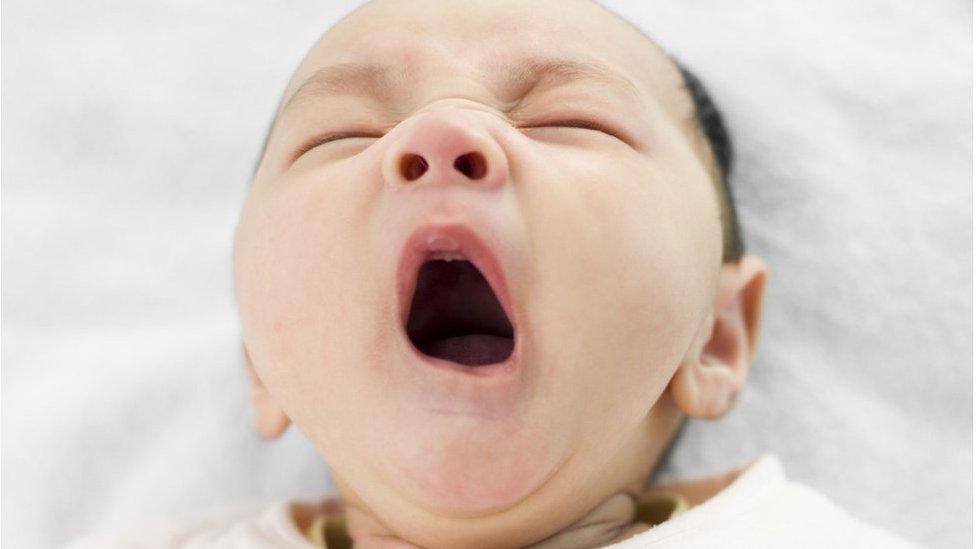
- Published24 June 2015
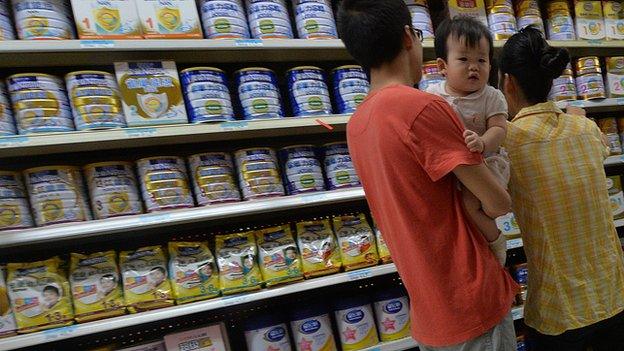
- Published11 November 2014
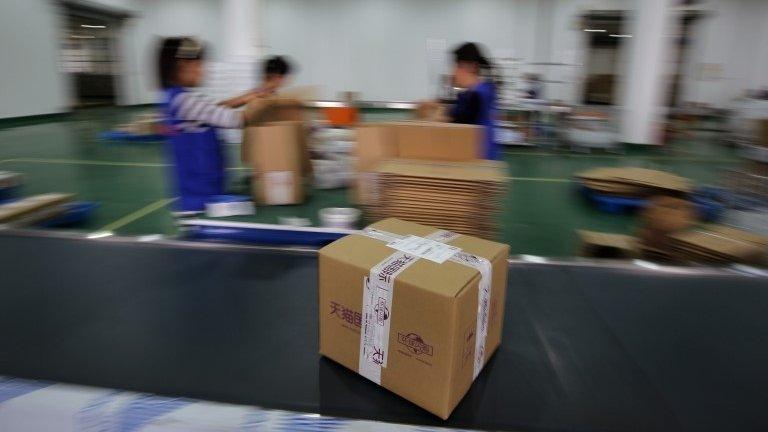
- Published14 January 2015
.jpg)